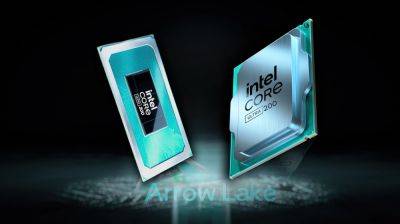Intel Blames Motherboard & System Manufacturers For 14th & 13th Gen CPU Stability Issues
Intel seems to have released an update regarding its 14th & 13th Gen CPU stability issues, calling out motherboard makers for not following recommended settings.
Intel Says 14th & 13th Gen CPU Stability Issues Are Due To Motherboard & System Makers Not Following Their Recommended Settings
The update comes several months after it was reported that Intel's 14th & 13th Gen CPUs have a really bad stability problem in several gaming applications. The issue was later discovered to be a problem caused by the CPUs being pushed way too hard from unlimited power limits and thermal profiles.
Related Story Intel Lunar Lake “Core Ultra 200V” CPU Spotted In Next-Gen HP Spectre x360 Laptop, Strong Battlemage “Xe2” Arc iGPU Performance
These settings were usually enabled by default on motherboards and the only way to fix these issues was either to manually tune the whole chip or simply undervolt/underclock it. Either way resulted in performance loss on your chip with up to -15% drops reported in recent tests. The tuning was necessary though as keeping the chip running like that would result in serious silicon degradation, resulting in more issues such as BSODs, failing to open any app, & I/O/DRAM problems too.
Only this week did motherboard makers finally start rolling out fixes to this issue by incorporating a new "Intel BaseLine" BIOS option. This new BIOS is already rolled out by ASUS and Gigabyte while MSI is offering a BIOS Guide to its users to mitigate these stability issues on Intel's 14th & 13th Gen CPUs. Other motherboard manufacturers will also be following up shortly with their solutions but as we have mentioned above, these profiles result in some serious performance drops, both in multi-threaded apps and games. So if you want better stability, you will end up having to run your chip slower than it was running before.
Most high-end motherboards have the power limits set to "Unlimited" or "4096W/A" modes. The following is a look at the different power limits, motherboard







